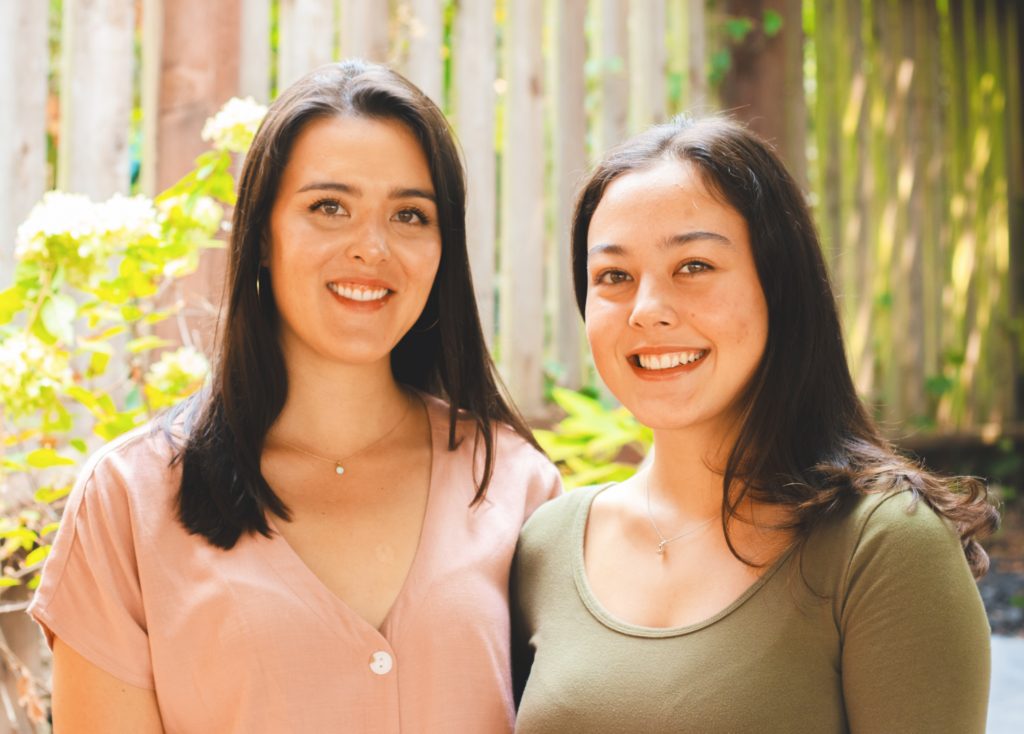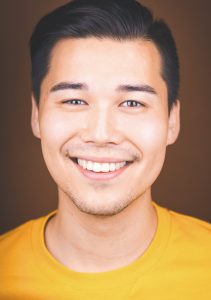Cousins Kristin Sato and Jessica Bukowski and Sam Hamashima are recognized for their award-winning entries.
By Sheera Tamura and Mieko Kuramoto, JACL NY/SC
This year has been unusual, to say the least. Without the chance for youth across the country to convene, meet new people and see old friends, as well as participate in the usual four-day marathon of an event that is the JACL National Convention, the National Youth/Student Council was faced with some serious questions: What is an NY/SC summer without convention? How are we going to meet new youth members? And, of course, how can we possibly foster a sense of community if we can’t see one another in person?
From these questions sprang the idea of a Digital Storytelling Contest. Using one of five mediums — journalistic-style essay, visual art, video presentation, poetry or creative writing — the NY/SC asked youth participants to send in their stories, all focusing on the theme of “How Does the Past Influence Your Present”?
Although it was only our first year holding the competition, the NY/SC was amazed by the entries received. It was difficult to only choose two, as each artist responded to the prompt in a unique way and brought to it their own identities. The following artists, though, stood out.
Entrants submitted pieces that were high quality not only in their respective mediums, but also infused with passion, warmth and a creativity that made them stand out in the field.
The NY/SC is thrilled to announce the winners: cousin team Kristin Sato and Jessica Bukowski of Mill Valley, Calif., with their short film “Enryo,” and Sam Hamashima of North Carolina with his series of poems titled “Family Heirlooms.”

NY/SC Storyteller Contest winners Jessica Bukowski and Kristin Sato. (Photo: Courtesy of NY/SC)
Sato and Bukowski worked as a team to create their animated stop-motion short film “Enryo,” a narrative about their grandfather’s grit in surviving the Great Depression and World War II incarceration. Sato and Bukowski captured the lesson that was passed down to them by their ancestors through the word enryo, literally translated as “to hold back.”
To them, however, it means something different.
“It means to take others’ needs into consideration before your own, to act selflessly and with empathy,” Sato narrates the short as the hand-cut stop-motion characters share sushi from a platter. “I ‘enryo’ because there is greater joy in seeing someone savor the last piece of sushi than if I were to eat it myself.”
Throughout the short film, Bukowski made the characters of their grandparents and themselves come alive by layering actual recordings of their voices over colorful paper cutouts painstakingly created and animated by hand.
They were inspired to create the film as a way for their family to remain connected during their time of separation as a result of the current pandemic.
The stop-motion style was inspired by Bukowski’s school-assigned documentary, when the shelter-in-place orders prohibited recording interviews in person. Not only did the project offer an additional way to connect with each other and their grandpa, Ken Sato, it also prompted them to document his stories, which otherwise would have been forgotten.
Sato and Bukowski also mentioned the importance of rice to their family in the film.
“Rice has always been a staple within our family for many generations, and therefore, we decided to create a piece that elaborates about its significance within our family,” they said.
“While growing up during the Great Depression, having enough rice to eat was something that was of great importance to our grandpa,” said Sato.
Added Bukowski, “Through our piece, we want to continue spreading diversity and educating people about our Japanese culture and heritage. We aspire for the youth of the JACL to pay attention to the culture and customs passed down from those who experienced these significant events, as we will never have that time again.”
Their incorporation of a number of materials, beautifully storyboarded narrative and the use of their grandfather’s actual voice as he tells his story combine to create a heartfelt testament to lessons learned through the gaman of their family.

NY/SC Storyteller Contest winner Sam Hamashima (Photo: Courtesy of NY/SC)
The contest’s second winner, Sam Hamashima, blew the NY/SC away with his collection of six poems, which delicately weave together his own experience of being a Japanese American with those of his father and grandparents.
Over the course of his collection, Hamashima brings the reader to sit in a seventh-grade Japanese class, pages through an old book of Japanese folktales and offers glimpses into conversations with his father.
Hamashima was raised in North Carolina but returned home from New York City prior to the onset of the COVID-19 pandemic. He is a member of the JACL Seabrook chapter, as his dad reminded him of the importance of joining and getting involved within the JACL. Among his written works are “American Spies and Other Homegrown Fables,” “BANANA” and “Supposed Home.” He holds a BFA in musical theater from the University of Michigan.
Hamashima stated that the digital story competition gave him a purpose to write, as he wanted to engage in many conversations surrounding race, identity and history. His piece entitled “Family Heirlooms” was a way to express his intergenerational traumas as he was able to reflect upon his family and their history.
For the people that will view his piece, Hamashima hopes that his writings will start conversations.
“As a queer individual, I was often searching for who I was, but I realized that as my grandparents continue passing, it is my responsibility to complete their work,” he said. “When an older generation passes, a new generation is born.”
Hamashima also wanted to remind the youth of the JACL to “explore new ways to get engaged with the material presented to you. Don’t just listen. In order to have a meaningful conversation, you need to respond.”
The NY/SC knows that storytelling has always been important, particularly for Japanese and Asian Americans. Much of our community history is recorded orally or passed down through personal archives, and in the present moment, it is especially important that we take note of our experiences, memories, thoughts and feelings. This competition was designed to uplift young JACL voices and use our stories, whether they be present or historical, to build connections with one another in times of physical distance.



